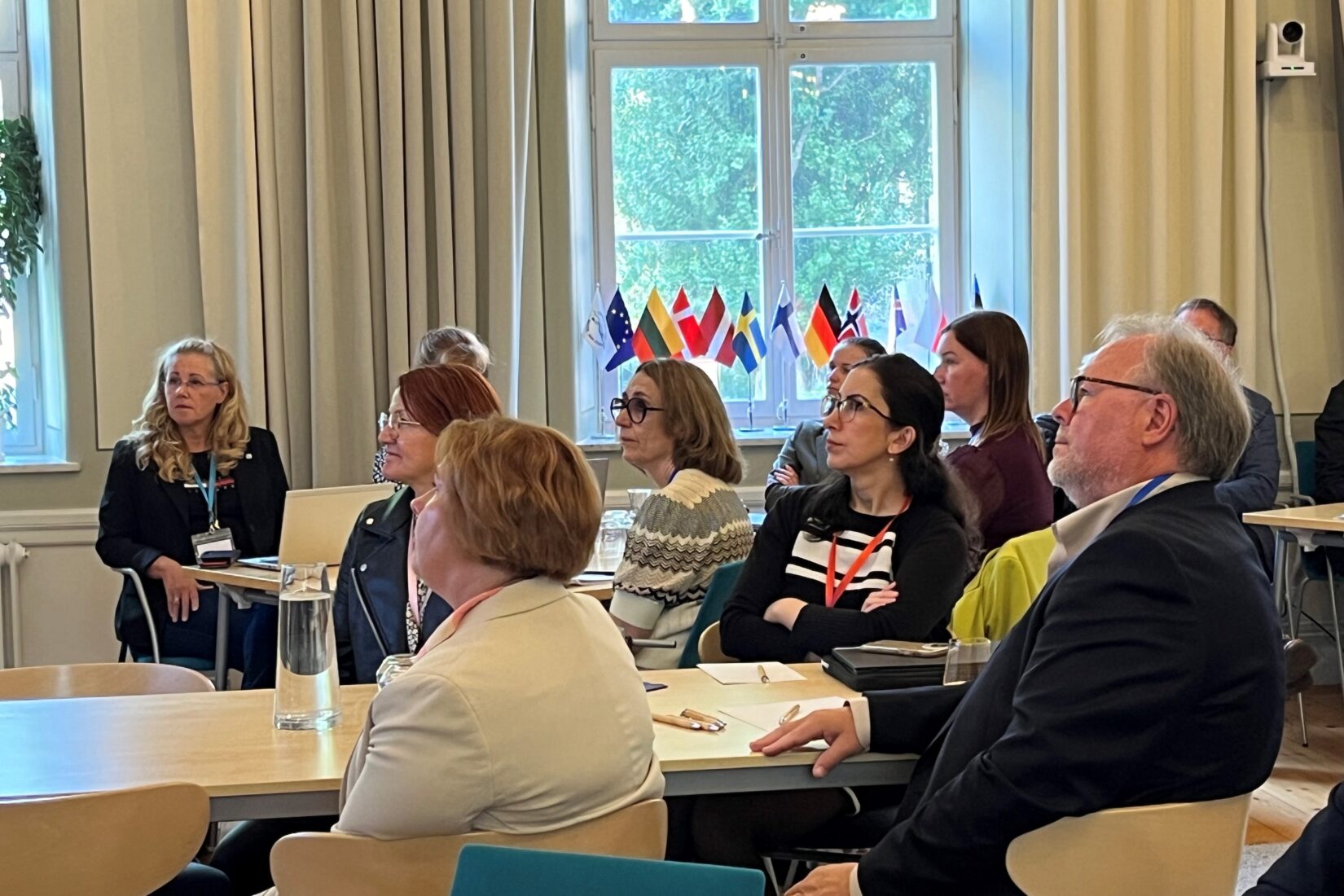The project EWP specifically aimed to address the societal challenge of maintaining active and healthy aging while safeguarding work ability.
Successful final event
The project recently organised its final event which gathered more than 40 experts in health and other policy areas from health ministries, universities, small enterprises, and NGOs from seven countries in the Baltic Sea region and Ukraine for a workshop focused on exploring framework conditions for social innovation transfer. The workshop aimed to identify successful interventions in the Baltic Sea region that contribute to the economy of wellbeing and could be adapted and implemented in other countries facing similar challenges. Key discussions covered new models for healthcare, innovative digital platforms for workplace mental health support, and innovative strategies from Ukraine to ensure employee wellbeing in times of crisis.
Successful practices from across the region, including Norway’s Arbeidsmiljøportalen and Sweden’s Senior Jobs initiative, were highlighted. An added value of the event was that it welcomed contributions from three active NDPHS projects: Economy of Well-being of People, funded by the Swedish Institute; MentalHealthMatters, funded by the Interreg Baltic Sea Region Programme; and Solutions for Age-Friendly Employers (SAFE), funded by the Interreg Central Baltic Programme.
– It was very positive that we could bring in stakeholders from our different projects. This gave different perspectives to the discussions, focusing on public health strategies to improve mental health support in workplaces and to promote age-friendly employment practices, says Ülla-Karin Nurm, director of the NDPHS Secretariat.
Outcomes and recommendations
One of the key outcomes of the EWP project was the development of an academic study proposing a strategic framework for a cross-sectoral cooperation network focused on health and well-being in the Baltic Sea region, as well as a theoretical model for the platform itself.
Ülla-Karin Nurm explains that the study’s recommendations outline a comprehensive approach for cross-sectoral cooperation, emphasizing the need for an evidence-based framework to establish a sustainable network. Other essential elements include securing long-term funding, expanding upon existing networks, and ensuring a diverse representation of participants. The study also highlights the importance of fostering international cooperation, promoting the value of shared knowledge, designing an environment that supports productive partnerships, and focusing on viability and sustainability to ensure lasting impact.
Ülla-Karin Nurm highlights the potential of cross-sector cooperation within the platform:
– By bringing together various stakeholders, we can facilitate the transfer of social innovations and exchange ideas about what is working and what isn’t. There is a lot that the different sectors can do when working together, through this platform, in the future.
Facts
The project EWP is a cooperation project, funded through the SI Baltic Sea Neighbourhood Programme. Funding for cooperation projects aims to deepen and further develop cooperation. For example, the funding can be used to build networks and platforms, as in the case above, develop and test models and methods, provide input to policy and strategy and to build/spread knowledge and competence.
Northern Dimension Partnership in Public Health and Social Well-being (NDPHS) is an intergovernmental organisation of countries from the Baltic Sea region and Northern Europe as well as several international organisations. NDPHS brings together like-minded public health enthusiasts to share knowledge, learn from each other and care for people through health advocacy. The EWP platform supports the policy area Health of the EU Strategy for the Baltic Sea Region (EUSBSR), which is coordinated by NDPHS.
